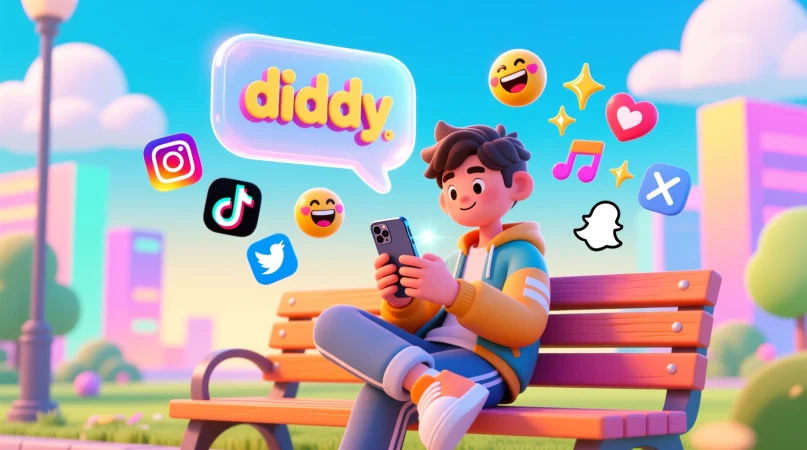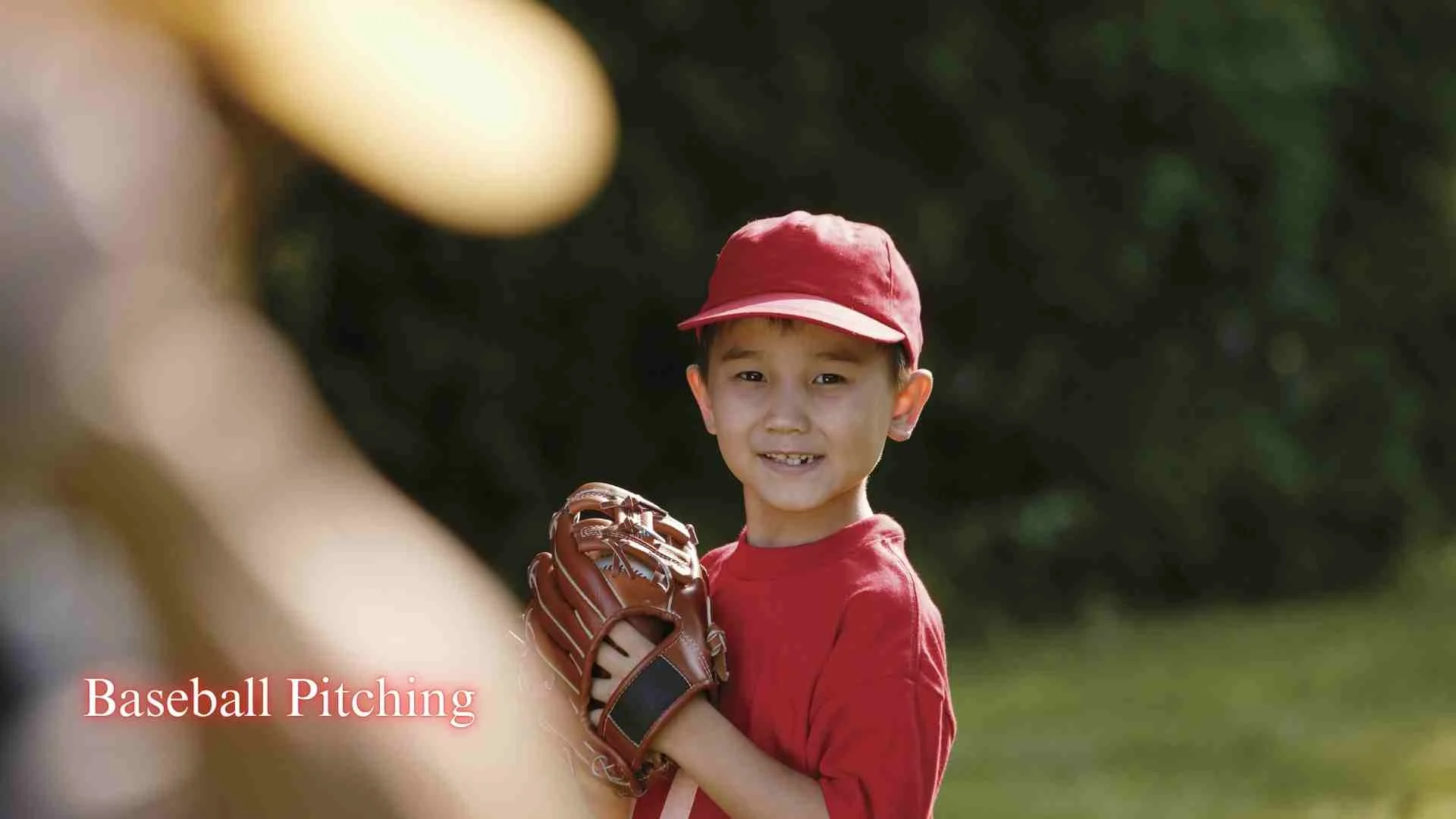Have you ever been texting a friend or scrolling social media and seen the term “diddy” pop up? Maybe someone said, “No diddy,” or “Nice try, diddy,” and you were left scratching your head.
In the age of instant messaging, gaming, and online communities, slang like this appears frequently. Understanding what didddy means is not just about knowing the word — it’s about connecting with others, avoiding misunderstandings, and even keeping conversations fun and engaging.
In this article, we will explore the meaning of “diddy,” its history, usage across different contexts, common misconceptions, similar terms, and tips for responding.
If you’re a casual texter, a gamer, or someone navigating professional communication online, this guide will make you confident in handling this playful term.
Definition & Meaning
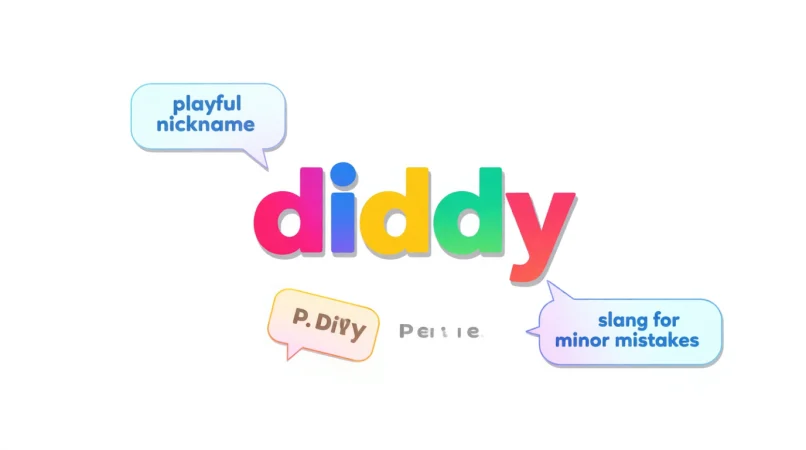
The term “diddy” can have several meanings depending on context:
- As a nickname or playful term: Often used affectionately, like “buddy” or “pal.”
- Referring to the famous musician: Some use it to reference Sean Combs, also known as P. Diddy.
- In casual slang: Can mean a small mistake, a minor achievement, or a cheeky remark.
Examples in dialogue:
- A: “I can’t believe I spilled my coffee again.”
B: “Haha, no diddy! It happens.” - A: “I finished the level first!”
B: “Nice try, diddy. I beat you by 10 points.”
Background & History
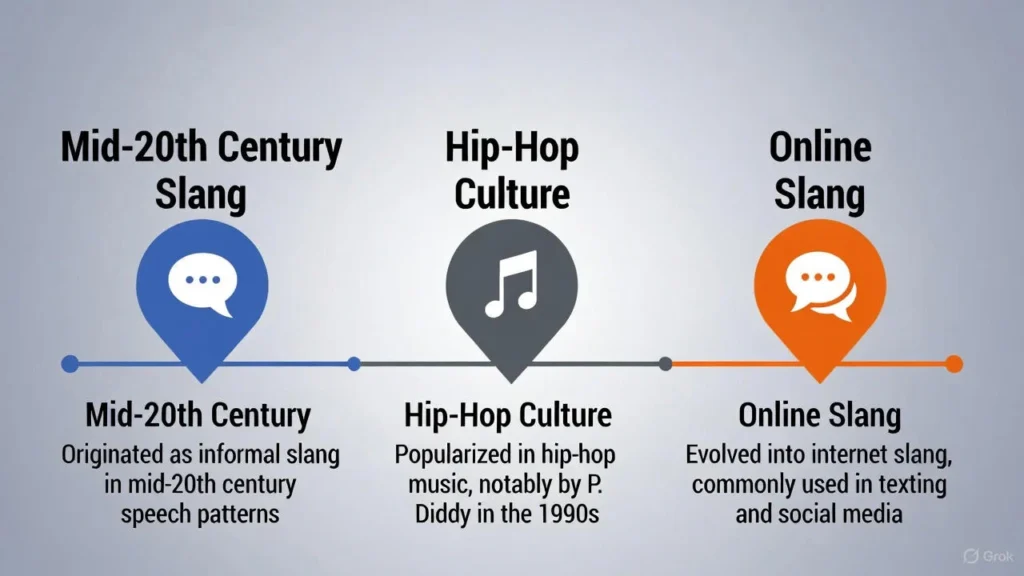
The origin of diddy as slang dates back to informal English in the mid-20th century, where it was often used as a playful or diminutive term for someone small or endearing. In the 1990s and 2000s, the term gained popularity in hip-hop culture, partly due to Sean Combs’ stage name, P. Diddy.
Over time, “diddy” evolved from being primarily a proper noun (a celebrity nickname) to a versatile slang term used in texting, gaming, and social media. Its playful and lighthearted tone makes it suitable for informal interactions.
Usage in Various Contexts
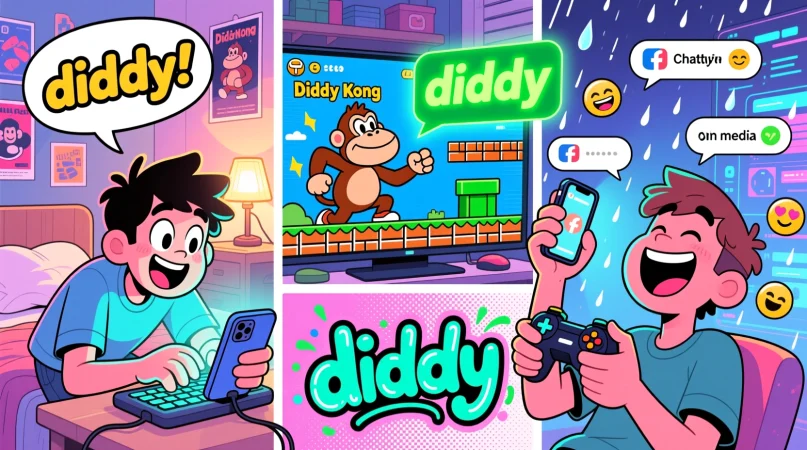
Texting & Messaging: “Diddy” is often used to tease or encourage friends.
- “Nice try, diddy!”
- “No diddy, it’s fine.”
Gaming: In online multiplayer games, it can be used to mock gently or celebrate a small win.
- “Gotcha, diddy!”
- “You almost beat me, diddy.”
Casual Conversations: It can replace words like buddy, friend, or mate.
- “Come on, diddy, let’s go grab lunch.”
Common Misconceptions & Clarifications
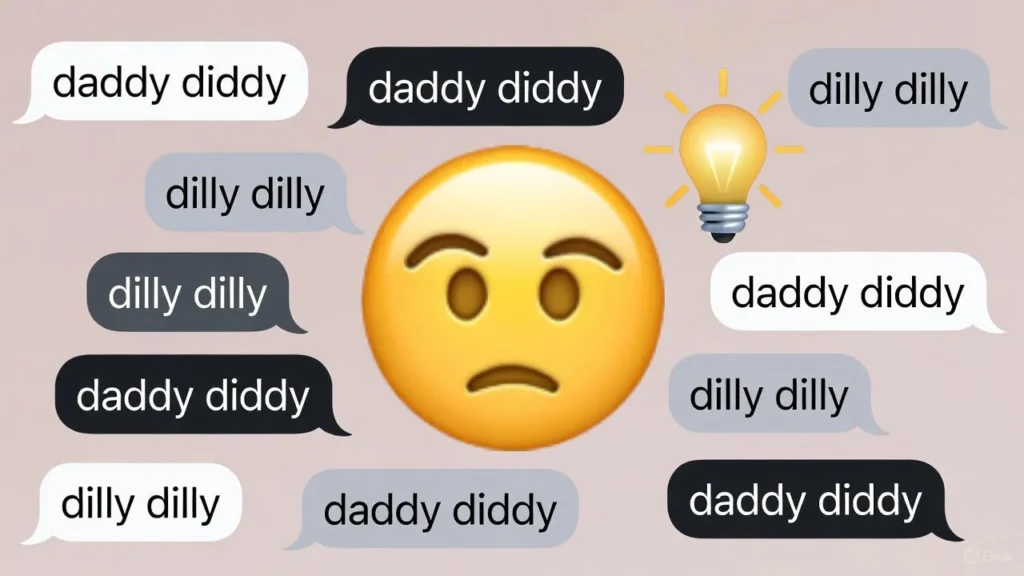
Many people confuse diddy with being disrespectful or offensive, but in most contexts, it’s playful. Misinterpretations include:
- Thinking it’s always a reference to Sean Combs.
- Assuming it’s rude or mocking.
- Using it in professional settings where slang is inappropriate.
Clarifying context is key. Tone, relationship, and medium (text, social media, gaming) all affect interpretation.
Similar Terms & Alternatives
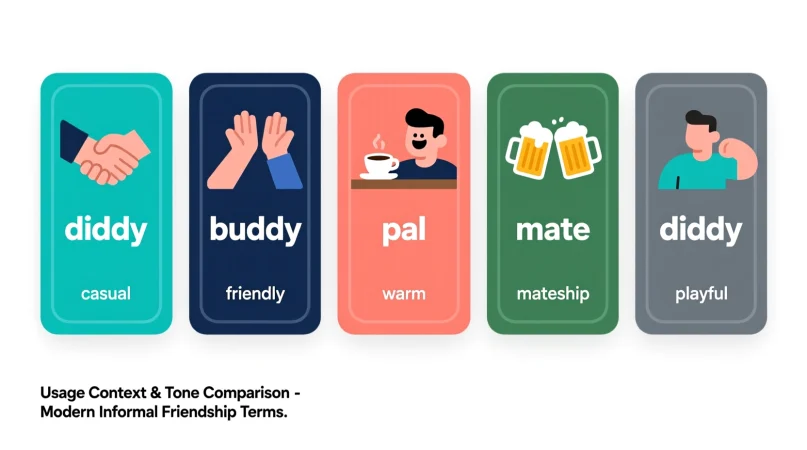
Some related words or playful nicknames include:
| Term | Usage Context | Tone |
|---|---|---|
| Buddy | Casual text/chat | Friendly |
| Pal | Informal speech | Friendly |
| Mate | UK slang | Friendly |
| Dude | Casual conversation | Friendly/Cool |
These can be used interchangeably with diddy depending on region and style.
How to Respond to This Term

Casual:
- “Haha, thanks diddy!”
Funny:
- “Watch out, diddy’s coming for you!”
Professional:
- Avoid using it. Respond neutrally: “Understood, thank you.”
Privacy-conscious:
- Ignore or respond with emojis if unsure of context.
Regional or Cultural Differences
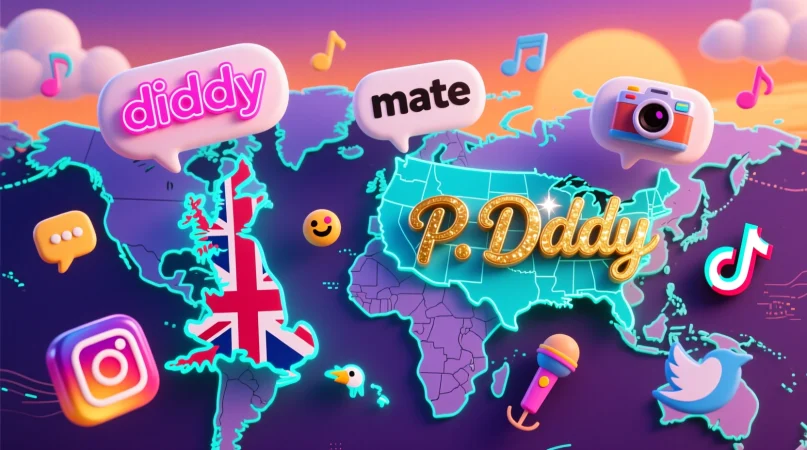
While diddy is widely recognized in English-speaking countries, some regions use alternative slang:
- UK: “Mate” instead of diddy.
- US: More likely to reference the celebrity, P. Diddy.
- Online communities often adapt it with inside jokes or memes.
Comparison with Similar Terms
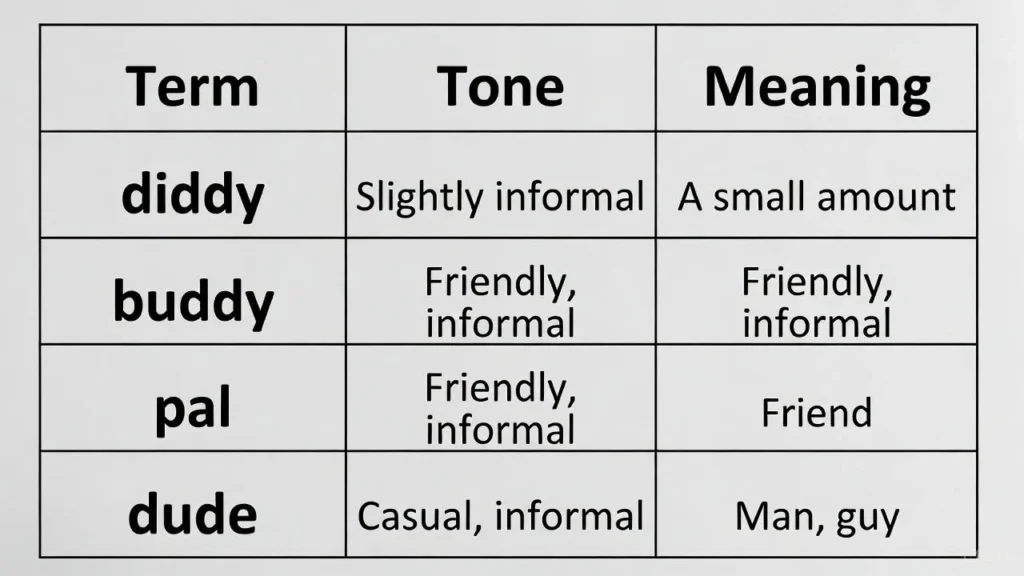
| Term | Meaning | Tone | Popularity |
|---|---|---|---|
| Diddy | Playful nickname | Lighthearted | Medium |
| Buddy | Friend | Friendly | High |
| Pal | Friend | Friendly | Medium |
| Dude | Informal male friend | Cool/Fun | High |
Usage in Online Communities & Dating Apps
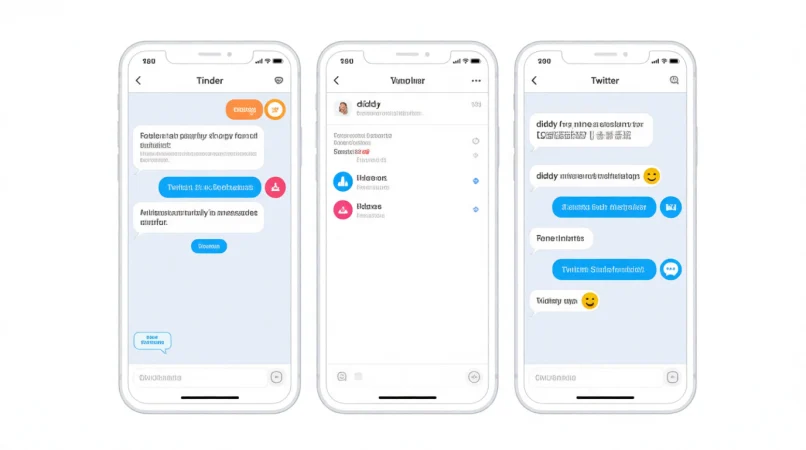
On platforms like Tinder, Twitter, and gaming forums, diddy is used casually:
- As a playful tease.
- To reference minor wins or jokes.
- Example on Twitter: “Nice try, diddy! But I’m the champ.”
Tips:
- Match the tone of the community.
- Avoid professional contexts.
- Use sparingly to avoid confusion.
Hidden or Offensive Meanings
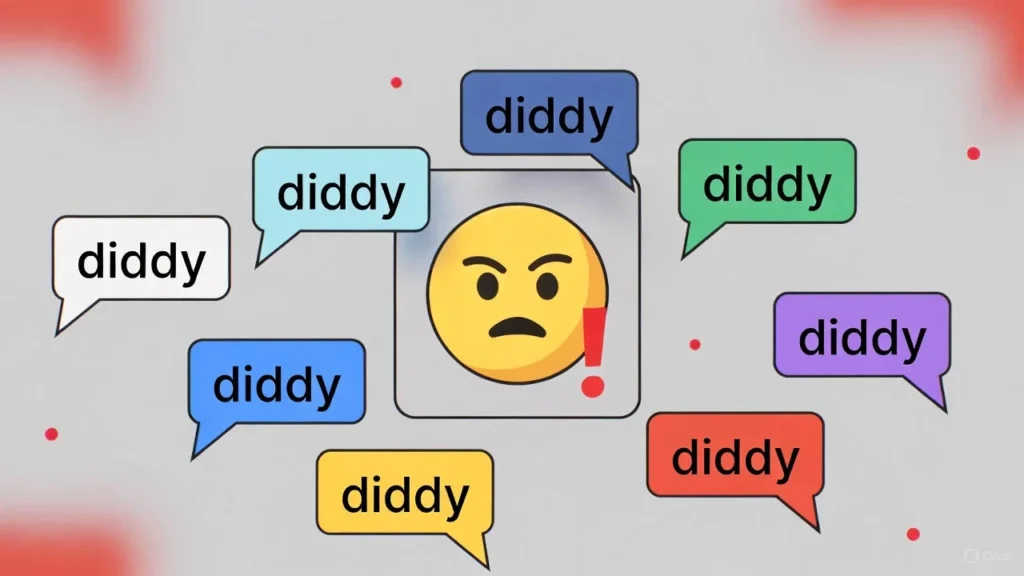
While rarely offensive, misuse can occur:
- Aggressive tone may make it sound mocking.
- Overuse may seem immature.
Context and tone are crucial to ensure it remains friendly and playful.
Suitability for Professional Communication
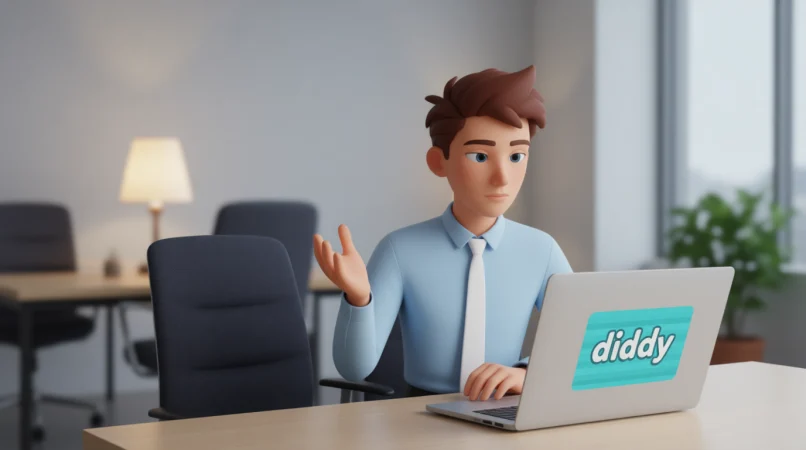
Diddy is generally not suitable in formal communication.
Alternatives:
- “Colleague”
- “Friend”
- Neutral acknowledgments like “Noted” or “Understood.”
FAQs
Q1: Can I call anyone “diddy”?
A1: Mostly with friends or informal contacts; avoid strangers or professionals.
Q2: Is “diddy” rude?
A2: Rarely, but context matters.
Q3: Does it refer to P. Diddy?
A3: Sometimes, but often it’s just playful slang.
Q4: Can I use it in emails?
A4: Not recommended in professional emails.
Q5: Are there regional differences?
A5: Yes, some regions prefer “mate,” “buddy,” or “pal.”
Q6: How do I respond if unsure?
A6: Neutral emojis or polite acknowledgment.
Q7: Is it suitable for gaming?
A7: Absolutely, often used humorously.
Conclusion
Understanding diddy helps navigate casual conversation, texting, social media, and gaming.
Its playful, lighthearted tone makes it a fun addition to slang vocabulary.
Remember context, audience, and tone, and you’ll never misstep when someone says, “Nice try, diddy!” or “No diddy.” With this guide, you can use, respond, and enjoy this term confidently.

